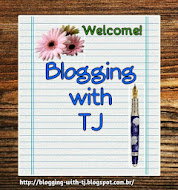Below, some of my most recent
translations. I’ll comment here on the blog about each one of them individually
with time, among the other posts about general subjects and the translation
area.
The books I translate are not mine, they belong to the authors, of course. But I translate them as if they were mine, with all my heart and soul. When you translate, you have to enter in the author’s mind, to know what he/she’s thinking, understand his/her feelings so that the book can be perfect. I feel this strong empathy with the author and make all the efforts for his/her book’s contents to be in Portuguese exactly the way they are in the original form in English. Translating is fascinating. Besides the knowledge about languages, I have to research a lot and I end up reading and learning many interesting things. That’s why I’m so proud when I see the result. The book is not mine, but I’ve treated it as if it was my own treasure all the way.
- The Book of Why - O
Livro do Porquê - Nicholas
Montemarano - LeYa
- Weapon: A Visual History of Arms and Armor - Armas - História Visual de Armas e Armaduras - Lafonte
- The World Atlas of
Whisky - O Atlas Mundial do
Whisky - O Atlas Mundial
do Whisky - Dave Broom - Larousse
- Being Wrong - Por
que Erramos? - Kathryn Schulz - Larousse
- Evidence of the
Afterlife - Evidências da Vida Após a Morte - Jeffrey Long
- Larousse
- It’s Your Time - A
Hora é Agora - Joel Osteen, Larousse
- Think Smart - Mente
Saudável, Mente Brilhante - Richard Restak -
Riverhead Books - Larousse
- Whisky Classified
- Whisky Classificado - David Wishart - Pavilion Books
- Larousse
- The Elephant and the Flea - O Elefante e a Pulga -
Charles Handy - Arrow - Almedina do Brasil
- Pauline Bonaparte, Venus of Empire - Paulina
Bonaparte, a Princesa do Prazer - Flora Fraser - Borzoi Book, Knopf -
Ediouro
- My Life as a Traitor - Minha Vida Como Traidora -
Zarah Ghahramani e Rober Hillman, Bloomsbury Publishing -
Ediouro
- How the Wise Decide - Como os Sábios Decidem - Bryn
Zeckhauser e Aaron Sandoski - Crown Business - Ediouro
- My Best Friend’s Girl
- A Filha da Minha Melhor Amiga - Dorothy Koomson, Sphere
(Warner), ARX
- Autobiography - Slash - Autobiografia - Anthony Bozza – HarperCollins - Edirouro
- 81 Challenges Smart Managers
Face – Desafios Gerenciais, Tim Connor - Sourcebooks - Futura
- Do it Tomorrow - Deixe para Amanhã - Mark Forster -
Hodder & Stoughton - Futura
- Was Your Boss Raised
by Wolves? - Seu Chefe Foi Criado por Lobos? -
Gerald M. Groe - Career
Press - Futura
- Fat Free and Fatal - Insaciável
- G.A McKevett - Kensington Books - ARX
- Mirage - Miragem
- Soheir Khashoggi - Forge-Tom Doherty - ARX
- A Dangerous Dress
- Um Vestido Perigoso - Julia Holden – NewAmerican - ARX
- Prince of Lost Places - O Príncipe dos Lugares Perdidos - Kathy
Hepinstall - Putnam - Best SellerSome of the translations of Tina Jeronymo to Portuguese.
Algumas das traduções de Tina Jeronymo para o português.







.jpeg)
.jpeg)


.jpg)
.jpg)
.jpg)
























